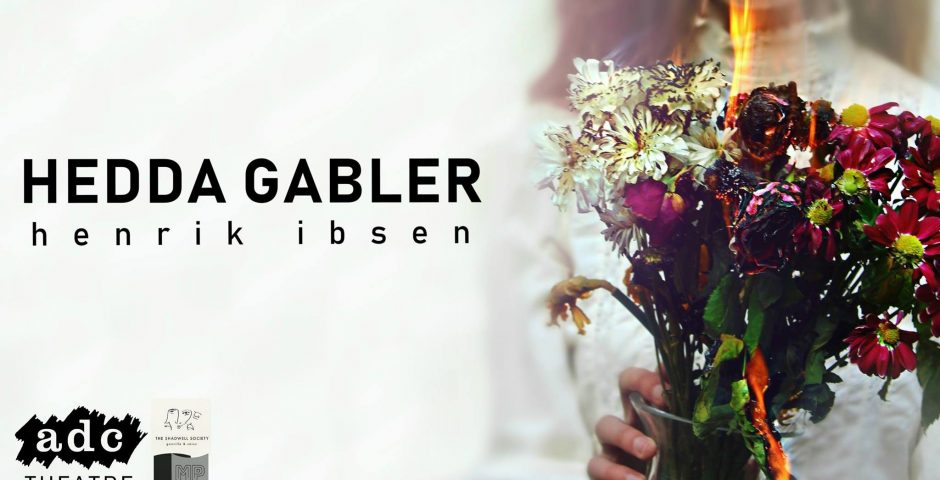
Review: Hedda Gabler
Fancy that!
Ibsen is arguably the father of modern naturalism. In this production by Erika Price, naturalism is the feeling of the hour, keeping things as controlled as possible – yet there are aspects which do seem to escape that control.
Watching the play, I am reminded curiously of Wild Honey, which I reviewed earlier in the term, having seen Will Batty, Inge-Vera Lipsius, Jesper Eriksson and Kay Benson interacting in a curiously similar imbalance of power dynamics, and thus it is hard not to compare their Chekhov roles to those in Ibsen, especially as the two writers can be so easily compared, with a focus on interpersonal dynamics and naturalism in acting above all.

Clearly, Lipsius excels in these roles, where a powerful woman holds court with her sexuality governing the men around her. Marriage is but a necessary action to Hedda, having worn herself out with youth – but she is clearly no less viable, given the sway she holds over not only her husband, but all the other men in the play. The dynamic between Lipsius and Jamie Bisping's Eilert Loevborg, Hedda's husband Tesman's academic rival, is electric, charged with their shared history and the manipulative power of Hedda over a man she claimed not to have loved: this is one of the strongest moments in the play, especially with the danger of their intimate discussion in earshot of her husband and Loevborg's current lover.
Although the play falls down a little with its set – the painting a little slapdash, the walls a little unsteady, clashing somewhat with the intended elegance and class of Hedda's supposedly unaccommodating tastes – the archway into the smaller back room, shrouded with white gauze is perfect in conveying the aspects of secrecy and concealment in the play, the feeling of what is left unseen and unsaid.
Will Batty is a delight to watch as Hedda's bumblingly affectionate academic husband, George Tesman – extraordinarily different from the raw and jagged semi-savagery – with a perfectly polished accent that feels like a sly send-up of certain Cambridge academics. At times, it seems that his amicable demeanour is unsuited to a scene that might be better served with stronger emotion, and yet in the horror of the play's closing image, it does seem perfectly apt.

Eriksson's slippery Judge Brack is suitably untrustworthy, in his endeavours to seduce the wife of his supposed good friend Tesman; he comes into his own most in his suspicion of Hedda's involvement in a death, turning her manipulative hand back on her with a well-controlled, light-handed cruelty that clearly tears at her.
It is a shame that Ibsen has not awarded George's Aunt Juliana a larger part in the play: Hannah Rice's depiction of the flustered, well-meaning Auntie Juju was absolutely spot-on, in her obvious affection for her nephew, and thus by extension his new bride, despite her reservations toward Hedda.
Lipsius is perhaps too fragile in the opening scenes, her disdain for both her husband and his aunt presenting itself as a woman stretched too thin; but Hedda reveals herself to in fact be the puppetmaster controlling her husband's strings. In fact, she plays with everyone she meets, glowing in a scene where she holds many strings- the charming hostess gone too far, thrusting alcoholic punch on a recovering alcoholic as the perfect irony.

This is a very difficult play to do well – many professional productions have struggled to garner the necessary impelling elements that Ibsen's naturalism commands, and this is a production that certainly contains moments of that impulsion, but struggles to keep up the electric energy that forces us to watch every character's smallest movement throughout the play. Nonetheless, those moments that do succeed in being perfectly purely conversational- almost throwaway- and yet intensely compelling, are incredibly strong, and cannot be disregarded when praising the play.
3 stars.
Images courtesy of the production team of Hedda Gabler.









































